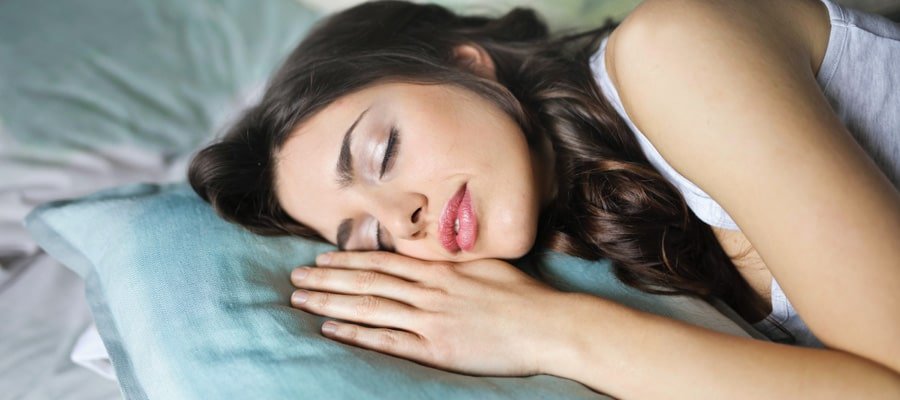Effective Sleeping Guidelines

Sleep is more than just a necessity; it is a superpower.
Quality sleep is essential for our overall health and well-being. Imagine waking up every morning feeling refreshed, energized, and ready to conquer the day! By following effective sleep guidelines, you can transform your nights into a sanctuary of rest and rejuvenation.
Small changes, like creating a calming bedtime routine or optimizing your sleep environment, can make a significant impact. This blog will explore tips to help you fall asleep faster and improve the quality of your rest. Let’s begin on this journey to discover the secrets of effective sleep and unlock your full potential!
Keep a Consistent Sleep Schedule
Maintaining a regular sleep schedule helps your body’s internal clock function properly. A consistent routine, like waking up and going to bed at the same time every day, signals your body when it is time to sleep and wake. In contrast, a disorganized schedule can disrupt your body’s natural rhythms, making it harder to fall asleep and stay asleep.
While it is important to have a regular bedtime, it is okay to have some flexibility. Life happens, and you may have events that keep you up later than usual. The key is to wake up at the same time each day, even after a late night. This practice helps maintain your body’s internal rhythm, ensuring you stay in sync with your natural sleep-wake cycle.
Get Morning Sunlight Exposure
Natural light exposure in the morning is crucial for regulating your sleep-wake cycle. It helps reset your internal clock, signaling your body to wake up and begin the day. Aim to spend the first hour of your morning in natural light, which can help reduce the production of melatonin, the hormone that promotes sleep. If natural light is not available, consider using a light source that mimics natural sunlight.
Limit Napping
While naps can be refreshing, excessive daytime sleep can interfere with your night-time sleep. If you feel the need to nap, try to limit it to 20-30 minutes and avoid napping late in the day. Keeping naps short and earlier in the day helps ensure they do not disrupt your body’s natural sleep-wake cycle.
Moderate Your Stimulant Intake
Stimulants like caffeine, nicotine, and sugar can interfere with your ability to fall asleep. If you consume these, try to do so earlier in the day, preferably before noon. Be aware of both obvious sources of caffeine, like coffee and energy drinks, and hidden ones, such as certain medications and supplements. Reducing or eliminating stimulants can help your body maintain its natural rhythm and promote better sleep.
Limit Alcohol Consumption
While alcohol might make you feel sleepy, it can disrupt your sleep cycle by preventing deep, restorative sleep. Alcohol relaxes your muscles, which can worsen sleep apnea or cause snoring. Reducing alcohol intake, especially close to bedtime, can improve the quality of your sleep.
Avoid Going to Bed Too Hungry or Too Full
It’s best to go to bed with a comfortable level of hunger. A light snack before bed can be helpful, but avoid heavy meals that can cause discomfort or acid reflux. Eating too much or too little before bedtime can disrupt your sleep, so find a balance that feels right for you.
Exercise Regularly
Regular physical activity is a natural way to improve sleep quality. Exercise helps reduce stress hormones like cortisol and adrenaline, which can interfere with sleep. Aim to exercise earlier in the day, as intense workouts close to bedtime might raise your body temperature and make it harder to fall asleep. Even light activity, like a short walk, can make a positive difference.
Dim Your Lights in the Evening
Our bodies are naturally tuned to sleep when it’s dark. Before electricity, people spent their nights in darkness, which signaled their brains to release melatonin, the sleep hormone. In the modern world, artificial lighting can confuse your internal clock. Dimming the lights in the evening can help prepare your body for sleep by encouraging melatonin production.
Turn Off Electronic Devices Before Bedtime
Electronic devices emit blue light, which can interfere with your sleep by suppressing melatonin production. It is best to limit screen time in the hour leading up to bedtime. If you need to use electronic devices, consider using blue light filters or wearing blue-blocking glasses to minimize the impact on your sleep.
Sleep on a Comfortable Bed
The comfort of your bed plays a significant role in the quality of your sleep. As your preferences may change over time, regularly assess the firmness or softness of your mattress. Make adjustments as needed to ensure your bed supports your comfort. If a new mattress is not an option, consider using a mattress topper to improve comfort.
Manage Sleep Disruptions from Bed Partners
Balancing your sleep needs with those of your partner, children, or pets is crucial for maintaining good sleep hygiene. If a bed partner’s snoring or restlessness disrupts your sleep, consider sleeping in a separate room for a trial period to see if it improves your rest. Weigh the benefits of sharing a bed against the quality of your sleep to make an informed decision.
Conclusion
Prioritizing good sleep is one of the most effective ways to boost your overall health and well-being. By maintaining a consistent sleep schedule, embracing morning sunlight, limiting stimulants and alcohol, and creating a calming bedtime environment, you can significantly enhance the quality of your sleep. Implement these tips to transform your nights into restful experiences and wake up feeling refreshed, energized, and ready to take on the day. Your body and mind will thank you!